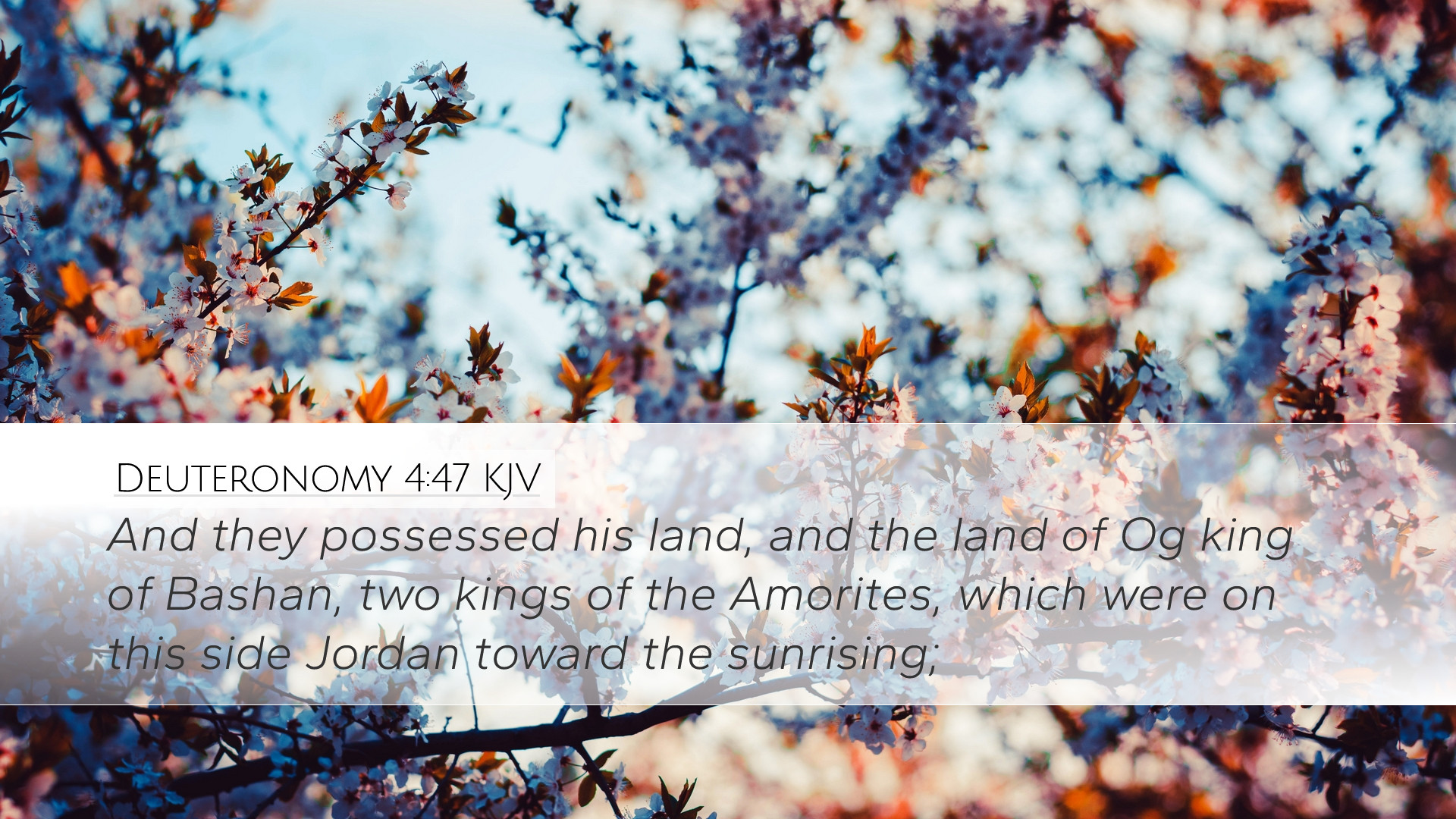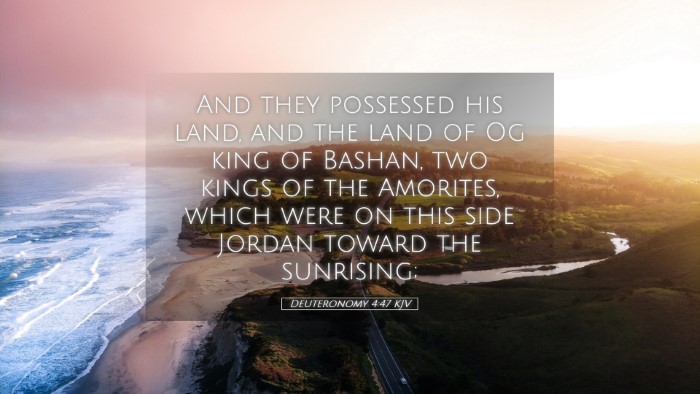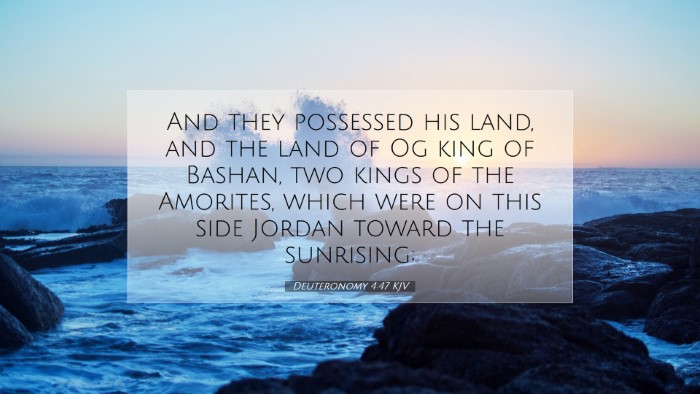Commentary on Deuteronomy 4:47
Verse: "And they possessed his land, and the land of Og which was the king of Bashan." - Deuteronomy 4:47
Introduction
This verse is part of the larger narrative in Deuteronomy, where Moses recalls Israel's journey and the victories they had experienced under God's command. The context of this passage is significant as it resonates with themes of divine providence, heritage, and inheritance. The possession of land is ultimately tied to God’s promises to Abraham, Isaac, and Jacob, highlighting the continuity of God's covenant with Israel.
Exegesis of the Verse
The phrase "they possessed his land" indicates a fulfillment of God's promise to grant the Israelites a homeland. Matthew Henry emphasizes the assertive nature of Israel's conquest, reflecting God's favor as instrumental in this victory. The mention of "Og, the king of Bashan" illustrates the challenges faced by the Israelites: Og was renowned for his strength and the size of his forces, yet they were able to triumph through divine strength.
Historical Context
The land of Bashan, situated east of the Jordan River, was characterized by its fertile land and robust cattle culture, a stark contrast to the wilderness through which the Israelites had traveled. Albert Barnes notes this land's significance; it was not merely a geographical region, but a part of the inheritance that God had prepared for the Israelites, underscoring the blessings that awaited them.
Theological Implications
- The Promise of Land: The land signifies not just territory, but a tangible manifestation of God's commitment to His people. This theme recurs throughout Scripture, culminating in the New Testament where believers are affirmed as heirs in Christ.
- Victory through Divine Aid: The victory over Og serves as a reminder of God's omnipotence. Adam Clarke expounds that it is not the military might of Israel that secured their victory but their unwavering faith and obedience to God's commands.
- Lessons in Remembrance: This verse functions as a historical reminder and a theological imperative for subsequent generations of Israelites to remember their past—acknowledging God's past faithfulness strengthens faith for future challenges.
Commentary Insights
Matthew Henry
Henry emphasizes the importance of remembering the victories God has given, noting that it should encourage and motivate believers to trust in God’s continued provision and protection. He also points out that the conquest of Og symbolizes God's ability to intervene on behalf of His people, asserting His sovereignty over all nations.
Albert Barnes
Barnes elaborates on the significance of Bashan in Israel's possession, referring to its “great strength and riches,” which served to demonstrate God’s ability to provide abundantly. He underscores the holistic nature of God’s promise—physically, spiritually, and in terms of the nation's identity.
Adam Clarke
Clarke provides an analysis of Og's lineage and what it symbolizes. He considers Og as a remnant of the giants, signifying challenges that seem insurmountable. Clarke's reflections encourage believers to confront their fears and challenges, remembering that with God's help, all things are possible.
Applications for Contemporary Believers
- Trust in God’s Promises: Just as Israel could trust that God would provide the land promised to them, contemporary believers can trust that God will fulfill His promises in their lives.
- Embrace the Journey: The Israelites had a journey marked by struggles and triumphs. Pastors and theologians may reflect on their own journeys, recognizing that faith builds through both struggles and victories.
- Community and Heritage: Understanding that believers today are part of a long history of faith can strengthen community ties, encouraging them to carry forward the legacy of God's faithfulness.
- Faith in Adversity: The conquest of Og serves as a profound reminder that true strength is not from human effort but from reliance on God. Scholars can explore this aspect in pastoral care and counseling paradigms.
Conclusion
Deuteronomy 4:47 encapsulates the faithfulness of God in guiding His people to physical and spiritual inheritance. The land of Og is not just a historical footnote, but a profound reminder of God's promises, blessings, and the call to remember and trust in His ongoing faithfulness. This verse invites theological reflection, encouraging believers across generations to stand firm in faith, knowing that God fights for His people.


